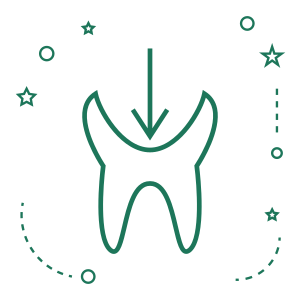![This is a thumbnail image of blog Discover the History of Veneers with Your Cosmetic Dentist in Green Lake This is a thumbnail image of blog Discover the History of Veneers with Your Cosmetic Dentist in Green Lake]()
Discover the History of Veneers with Your Cosmetic Dentist in Green Lake
Aug 10, 2020![This is a thumbnail image of blog Why Do Dental Implants Fail? This is a thumbnail image of blog Why Do Dental Implants Fail?]()
Why Do Dental Implants Fail?
Feb 28, 2021![This is a thumbnail image of blog Dentist in Green Lake Caters to Young Smiles This is a thumbnail image of blog Dentist in Green Lake Caters to Young Smiles]()
Dentist in Green Lake Caters to Young Smiles
Dec 13, 2020![This is a thumbnail image of blog Cosmetic Dentistry Unveiled: How It Enhances Oral Health and Functionality This is a thumbnail image of blog Cosmetic Dentistry Unveiled: How It Enhances Oral Health and Functionality]()
Cosmetic Dentistry Unveiled: How It Enhances Oral Health and Functionality
Feb 06, 2025![Dental Implants in Seattle, WA Dental Implants in Seattle, WA]()
Is Dental Implant Surgery Right for You? Unveiling the Qualities of an Ideal Candidate
Feb 14, 2024

Are You Experiencing Symptoms of Sleep Apnea? Will They Go Away?
While some problems go away in time, others, like sleep apnea in Northgate, can get worse. Chronic loud snoring can be an annoying and inconvenient symptom of your sleeping condition, but that’s not the only problem that arises because of it. When your issue is left untreated, it can begin to impact your overall health and wellbeing. Read on to learn factors that can make your condition more severe and how to keep symptoms from affecting your daily life.
What Factors Make Your Sleep Apnea Worse?
Some reasons that your sleep apnea symptoms can get worse are out of your control, while others aren’t. There are a number of genetic and anatomical components that play a role in how bad your obstructive sleep apnea symptoms are. There are also bad lifestyle habits and choices that can make the effects of your condition more severe. Some of these factors include:
- Sleep Position – studies show that sleeping on your back can cause breathing disruptions.
- Alcohol Consumption – drinking alcohol before bed can cause your muscles to relax too much, resulting in a more collapsible upper airway, blocking the flow of oxygen.
- Going Through Menopause – as you age, certain hormones that help expand your airway (progesterone and estrogen) are produced less.
- Weight Gain – weight gained around the neck and base of the tongue can place extra pressure on your airway.
- Aging – as you get older, you lose muscle tone within your airways, making it more collapsible.
The best way to reduce your health risks is to cut out any of the avoidable or reversible factors that are listed above, such as bad habits. Since these are within your power to change, it’s a good place to start. Otherwise, be sure to visit a sleep specialist to get an official diagnosis before seeking professional treatment.
What Happens When Sleep Apnea Isn’t Treated?
Countless studies have established a link between obstructive sleep apnea, and decreased oxygen levels that lead to several health problems. It doesn’t just cause your quality of rest to decline, it also results in issues such as:
- High blood pressure
- Heart disease
- Weight gain
- Acid reflux
- Stroke
- Depression
- Headaches
How Can You Treat Your Sleep Apnea?
The first step to reducing the risks of this sleeping condition is to complete a sleep study. Nowadays, you can get them done at home or at a lab, depending on what option is most convenient for you. Once you’ve been diagnosed with obstructive sleep apnea, you can start by looking into treatment options. Typically, patients try CPAP therapy, which uses a small and quiet machine to keep your airway open while you sleep. If this option keeps you up at night or doesn’t quite cut it, a dentist in Northgate also offers custom oral appliances that shift your jaw to open your airways.
Whether you’ve suffered from sleep apnea for years and the symptoms seem to be getting worse, or you just started experiencing common signs, it’s never too soon or late to seek help. With the right treatment plan, you’ll be able to improve your quality of life and rest easy.
Office Hours
MON9:00 am - 5:00 pm
FRI8:00 am - 5:00 pm
SAT - SUNClosed





















comments